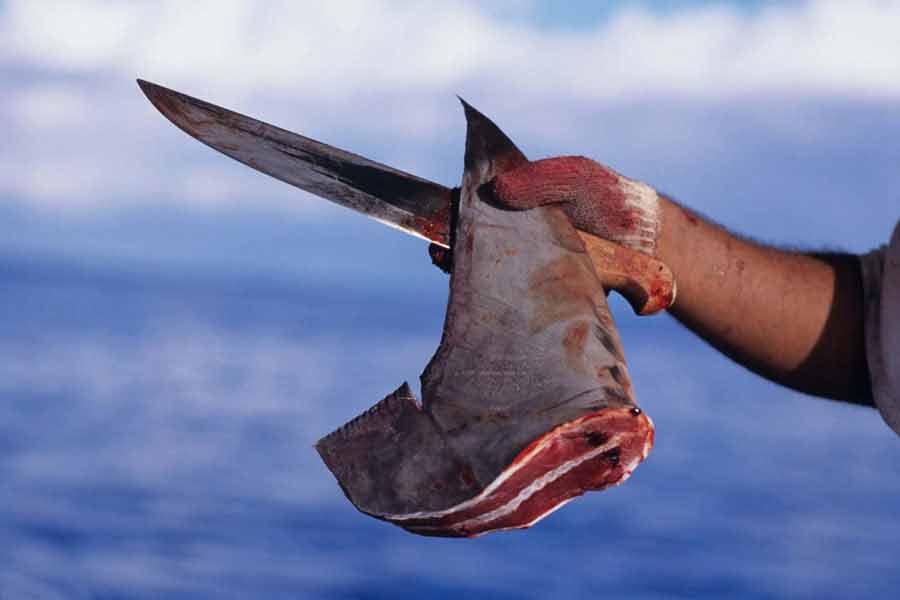
A few months ago, a group of paleontologists working in New Brunswick, Canada, unearthed the remains of the oldest shark ever discovered. This fossil tells us that sharks were already dominating the seas 409 million years ago.
What is incredible is that this shark is very similar to modern sharks. Despite the fact that the sea was seven times denser 400 million years ago, sharks did not undergo changes in their evolution. They adapted to all climate and environmental alterations without modifying their structure. When a design is perfect, it doesn’t need to change. Sharks survived the dinosaurs and the changes brought about by humans, at least until our days. But this seems to be changing.
Since the 1980s, commercial shark fishing has increased to incredible levels. This is due to the practice of «finning,» a gruesome fishing technique that involves capturing the animal, hauling it on board, cutting off its fins, and throwing it back into the water alive, where it will die a slow and agonizing death from suffocation.
Shark fins represent only 5% of the animal’s body weight, so the remaining 95% is completely wasted. Once dried, the fins are sent to markets in Taiwan, China, and Japan, where they are used to prepare «shark fin soup,» a dish that can reach a commercial value of $90 and is falsely attributed with aphrodisiac properties. Estimates and projections from global fishing organizations suggest that 100 million sharks are killed each year in this type of fishing. However, these figures do not take into account the extent of illegal fishing, which may be even greater but lacks comprehensive data.
Fishermen, especially in Latin America, have learned that they can make much more money by filling their boats with fins rather than preserving the whole animal. Fins weigh less, take up much less space, can be better preserved, and are much more valuable than the rest of the shark. That is why even in regions where shark fishing is prohibited and where no one is thinking about shark fin soup, this illegal practice continues. Researchers in the Galapagos Islands, where shark fishing is prohibited, warn that fifteen years ago, they could observe schools of up to 300 hammerhead sharks in the area. Today, it is rare to see a group of more than 30 sharks.
Hated by many, feared by all, sharks are at the top of the marine food chain. If sharks were to disappear, their prey would increase disproportionately, leading to a food chain imbalance that could jeopardize the entire marine ecosystem.
I refuse to believe that the most formidable predator in creation, the perfect model of evolution, will disappear from the seas simply so that a group of men can obtain the dubious pleasure of a fake aphrodisiac. I refuse to believe that the rest of humanity will allow them to do so.
«One cannot defend what one does not love, and one cannot love what one does not know.»

